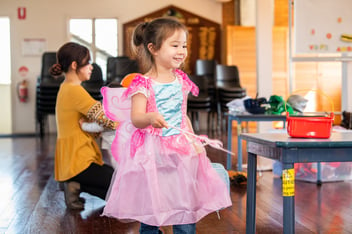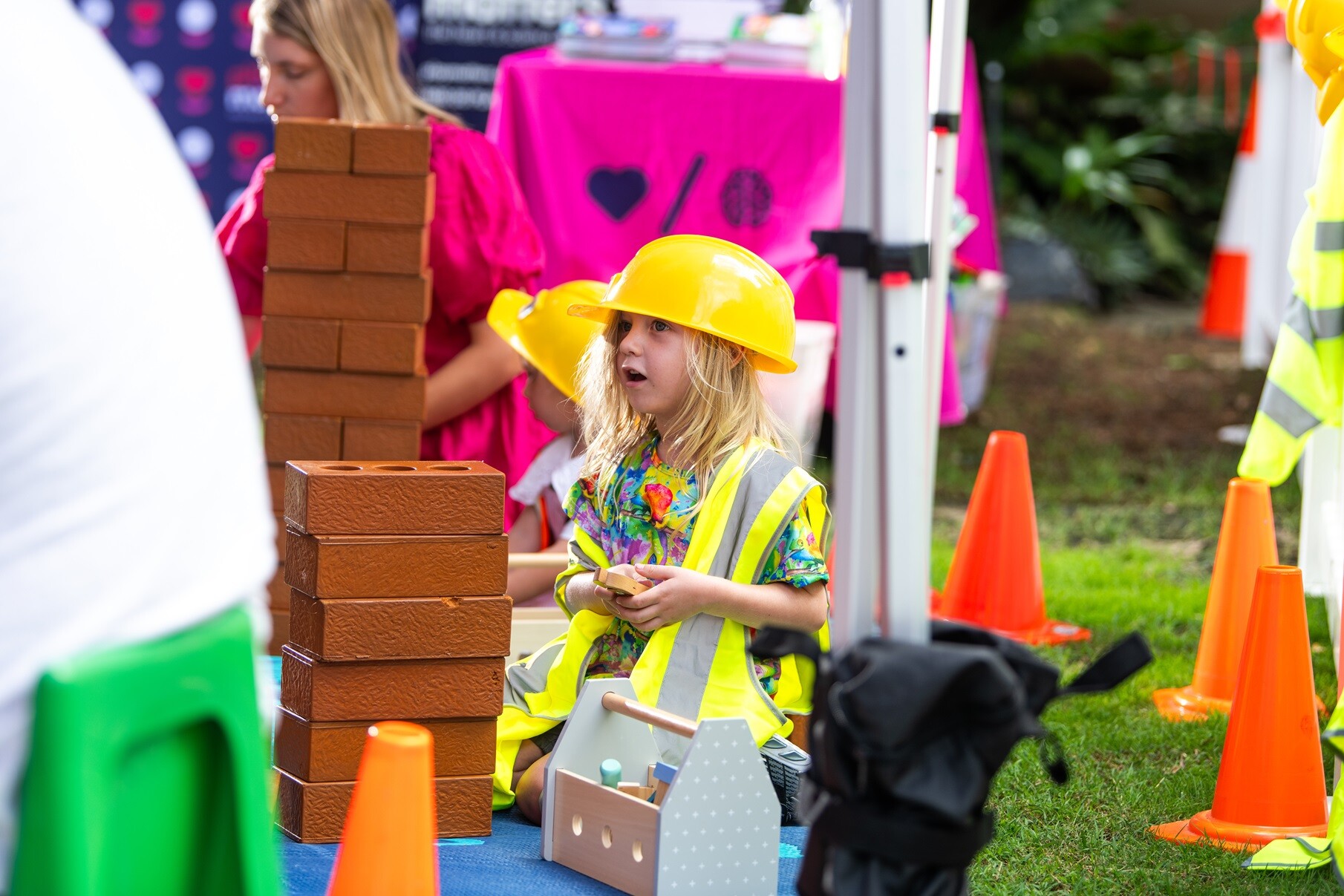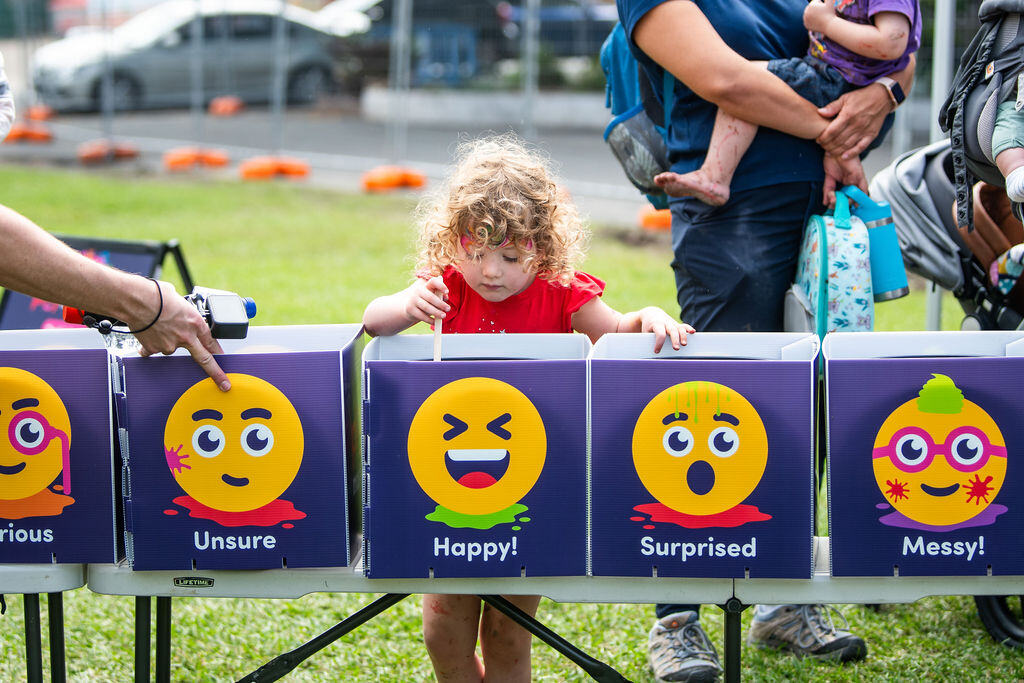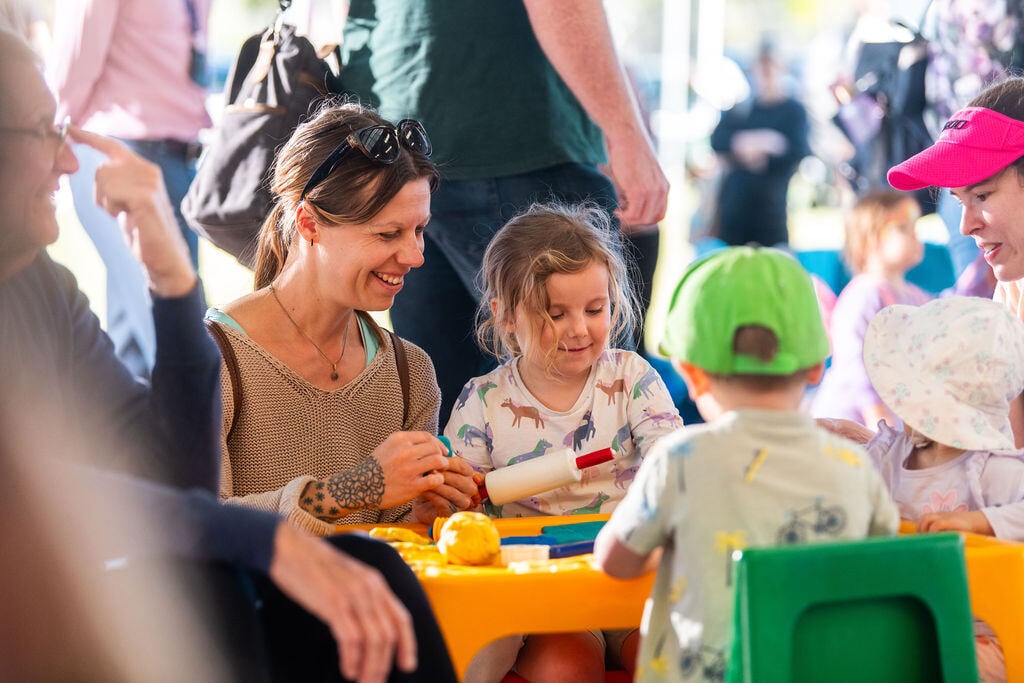



Blog > How Imaginative Play Builds a Foundation for Reading and Literacy Skills


Imaginative play is a crucial part of childhood, offering much more than just fun. It's a powerful way to prepare children for reading and can help build early literacy skills. When children engage in pretend play, they're not just having a good time—they're exploring language, crafting stories, and grasping the concept of symbols, all of which are vital for reading. Parents, carers and educators can tap into children’s natural creativity and imagination to support learning and build the foundations of reading and literacy that can lead to school success.
.jpg?width=900&height=600&name=REDLANDS%20SPM%20HQ%20HIGHLIGHTS%20(2).jpg)
Language formation starts with speech and non-verbal skills long before children start to recognise letters and words. Language development through play begins with solo early role playing with simple language, like pretending to ‘feed’ toys and baby dolls, to complex fairy tales, superheroes as their vocabulary and imaginative abilities grow. This kind of play provides a context for practising new words and phrases, boosting language proficiency. Additionally, when children engage in sociodramatic play with peers, they learn how to use language effectively in social settings, developing essential communication skills
%20(1).jpg?width=900&height=600&name=PMA%20SYDNEY%20PHOTOSHOOT%20(78)%20(1).jpg)
Imaginative play offers children a wonderful opportunity to hone their narrative skills. As they immerse themselves in pretend scenarios, they create their own stories filled with characters, settings, and plots. This storytelling process helps them grasp the structure of narratives, which is vital for reading comprehension and storytelling, and later literacy skills. Through play, children learn to sequence events, understand cause and effect, and view situations from different perspectives—all key elements of literacy.
%20(1).jpg?width=900&height=631&name=NPW%202024%20CANDIDS%20(56)%20(1).jpg)
Symbolic thinking is a cornerstone of both imaginative play and literacy development. When children engage in pretend play, they use objects to represent other things—like a block as a phone or a stick as a magic wand. This ability to think symbolically is crucial for understanding how letters and words represent sounds and meanings. According to Reading Australia, this type of play helps children develop the cognitive skills necessary for reading by encouraging them to explore language and symbols in a playful context. Through symbolic play, children practise making connections between symbols and their meanings, enhancing their reading comprehension and preparing them for more complex literacy tasks.

Playing imaginative games with peers allows children a safe space to explore different voices and perspectives. It also challenges them to listen closely to each other, follow directions and use clear communication. These social interactions allow natural practise of phonological skills like rhyming, blending sounds, identifying syllables, as well as creating different voices and awareness of adjectives and storytelling.
Parents and educators have a crucial role in fostering imaginative play to support literacy development. By creating environments that encourage pretend play, they can significantly enrich children's learning experiences.
Here are some practical tips:
Create Inviting Play Spaces: Designate areas filled with props like costumes, puppets, and storybooks to spark children's imaginations and inspire creative scenarios.
Encourage Storytelling: Engage children with open-ended questions during play to help them expand their narratives and think creatively.
Consume stories together: Taking time to read each day, listen to audiobooks, watch movies and listen while telling oral stories will give children a richer vocabulary and cast of characters to draw on in their imaginative play.
Be an Active Participant: Join in as a co-player to model language use, introduce new vocabulary, and gently guide play towards enriching learning opportunities.
Imaginative play is a powerful tool for nurturing the skills children need for reading and literacy. By engaging in pretend play, children develop language proficiency, narrative understanding, and symbolic thinking—key components of literacy. Parents and educators can play an essential role by creating environments that encourage imaginative play, supporting children as they explore and learn. Embracing play-based learning not only enhances academic skills but also fosters creativity and a lifelong love for storytelling and reading.
Resources:
Early Childhood Australia. (n.d.). Statement on play. Retrieved from https://www.earlychildhoodaustralia.org.au/our-work/eca-statement-on-play/
Pathways.org. (n.d.). The importance of symbolic play. Retrieved from https://pathways.org
Raising Children Network. (n.d.). Imagining play: Preschoolers. Retrieved from https://raisingchildren.net.au/preschoolers/play-learning/play-preschooler-development/imagining-play-preschoolers
Reading Australia. (2016, November). Oral language play and learning. Retrieved from https://readingaustralia.com.au/2016/11/oral-language-play-and-learning/
The Genius of Play. (n.d.). The power of pretend play in language and literacy learning. Retrieved from https://thegeniusofplay.org/genius/expert-advice/articles/the-power-of-pretend-play-in-language-and-literacy-learning.aspx
UNICEF Australia. (n.d.). World Children's Day. Retrieved September 25, 2024, from https://www.unicef.org.au/world-childrens-day
Advertisement:
.jpg)